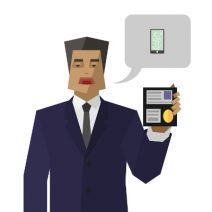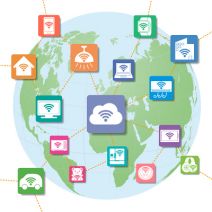Did you know that over 2,000 Domino’s Pizza franchises in Australia, New Zealand, France, Belgium, The Netherlands, Japan, and Germany feature delivery by robot? Starship Technologies, a self-driving robotics company, announced on March 29th that they would be partnering with Domino’s to revolutionize the way the delivery process works.
It’s also worth mentioning that this development comes on the heels of the company’s projected growth estimates for the next five-to-ten years, predicting a worker shortage that the delivery robots can hopefully remedy in the long term. It’s just one way that modern enterprises are using technology to improve the way they run their organizations.
Domino’s Group CEO and Managing Director, Don Meji, states: “Robotic delivery units will complement our existing delivery methods, including cars, scooters, and e-bikes, ensuring our customers can get the hottest, freshest-made pizza delivered directly to them, wherever they are.”
Just think, maybe someday you can have a way to get fresh, delicious pizza delivered right to your front door via autonomous robot. Unfortunately, this does have some limitations. These robots can only deliver to customers within a one-mile radius of their designated Domino’s store, and that’s only in specific cities in Germany and the Netherlands. Also of note is that these battery-powered robots can only move along sidewalks at a speed of no more that four miles per hour, and can only carry a maximum of twenty pounds of food at a time.
The United States, among others, have also been looking into food delivery robots as valid opportunities over the past year. Some examples are U.S.-based companies Postmates and DoorDash. These companies have started to test Starship Technologies’ robots in multiple cities, but that doesn’t mean that you should expect to see robots at your door anytime soon, as only two states currently have legislation passed to make it legal for automated, ground-based robots to deliver food. The two states, Virginia and Idaho, may be joined shortly by other states that have pending legislation on the matter: Florida and Wisconsin.
In Idaho’s case, the state law lets local jurisdictions adopt their own regulations. This gives local governments authority to limit any delivery robot’s speed, and which location within the municipality they are allowed to be in use. If this technology takes hold in these places, many other states will almost certainly follow suit, even though there still is, admittedly, plenty of issues to square away, such as the cost of maintenance and security for these devices.
What are your thoughts about robots delivering pizza? Is it another marketing ploy by a company that is known for their outside-the-box thinking, or is it a viable (meaning cost-effective) alteration in Domino’s current business model? We’d love to read your thoughts in the comments section below.




















